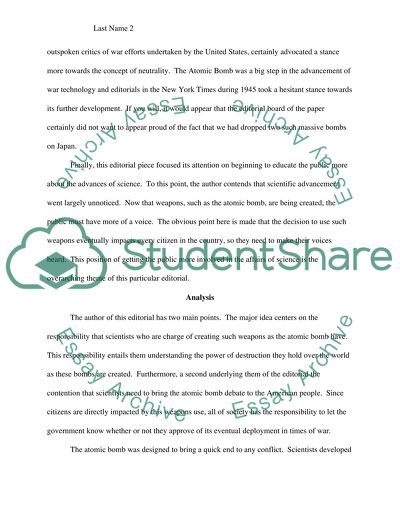Cite this document
(“The atomic bomb essay Example | Topics and Well Written Essays - 1000 words”, n.d.)
Retrieved from https://studentshare.org/history/1463420-the-atomic-bomb-essay
Retrieved from https://studentshare.org/history/1463420-the-atomic-bomb-essay
(The Atomic Bomb Essay Example | Topics and Well Written Essays - 1000 Words)
https://studentshare.org/history/1463420-the-atomic-bomb-essay.
https://studentshare.org/history/1463420-the-atomic-bomb-essay.
“The Atomic Bomb Essay Example | Topics and Well Written Essays - 1000 Words”, n.d. https://studentshare.org/history/1463420-the-atomic-bomb-essay.


